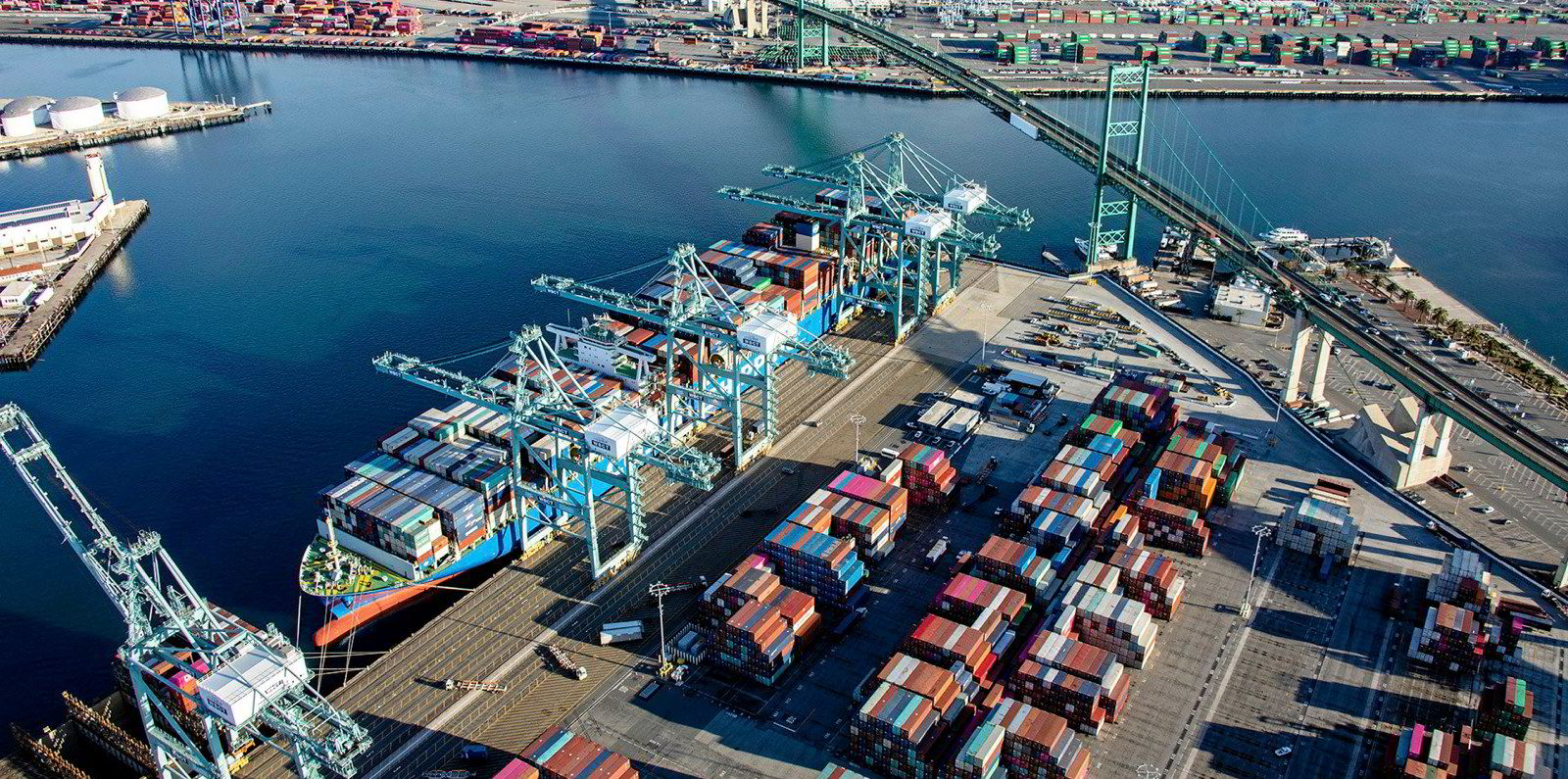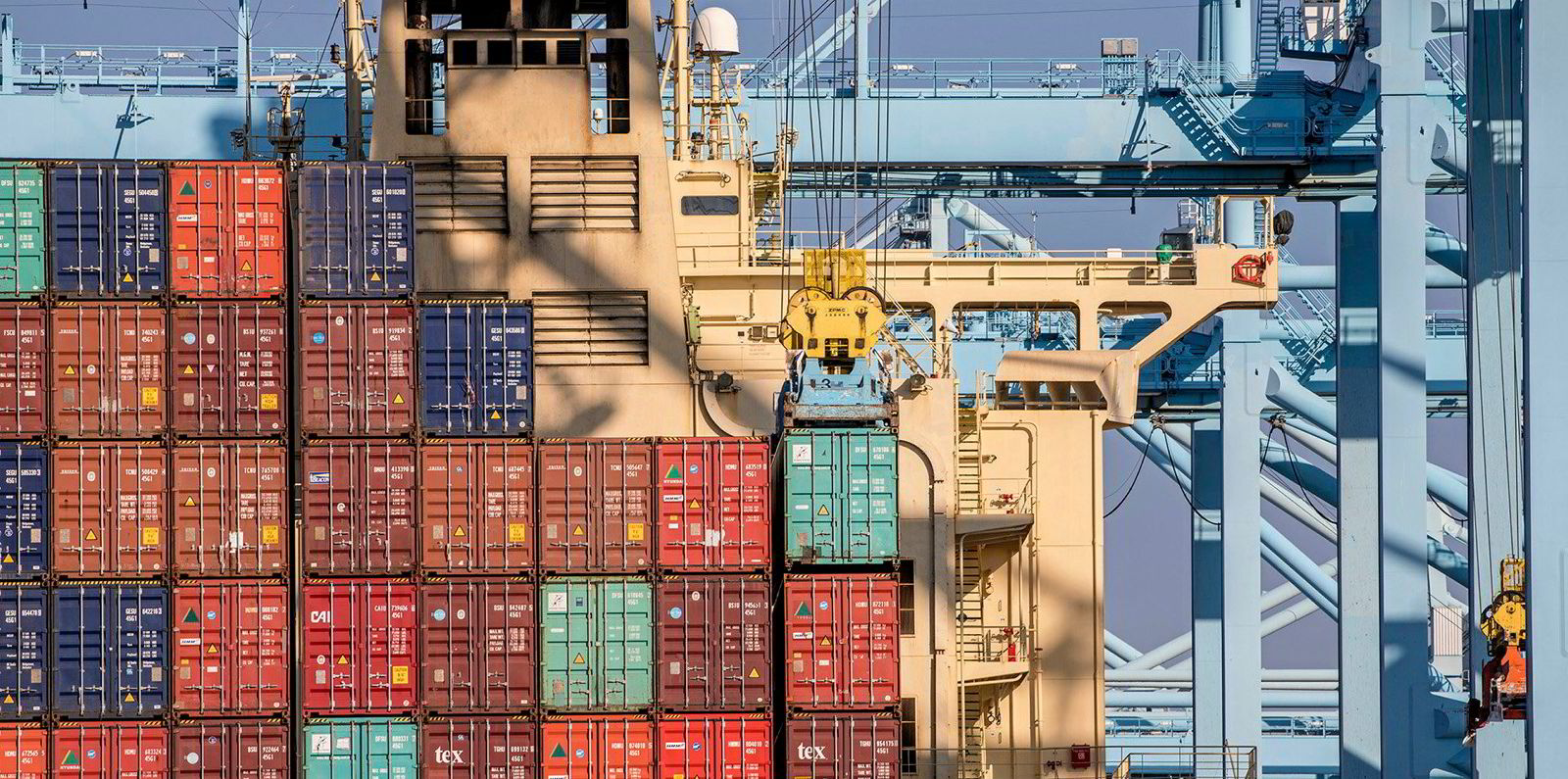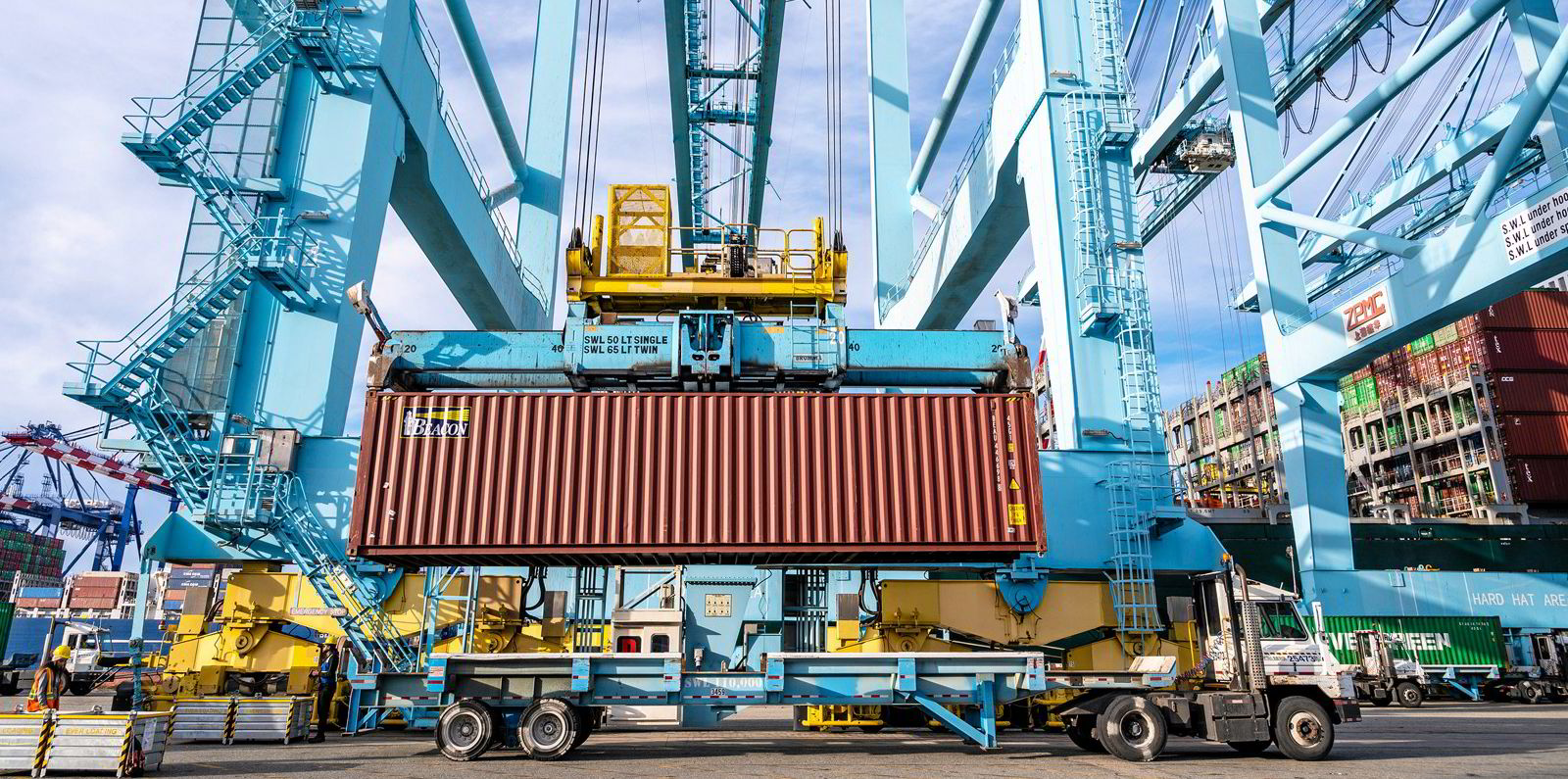The Pacific Maritime Association (PMA) has accused a dockworker union of causing further disruptions at the ports of Los Angeles and Long Beach, although both sides have said that talks are moving forward on reaching a new labour contract.
On Thursday, the PMA said International Longshore and Warehouse Union (ILWU) dockworkers have carried out unnecessary inspections at both ports in an effort to disrupt their day-to-day activity.
“While significant progress has been achieved in coast-wise contract negotiations, several key issues remain unresolved,” said the PMA, which represents 70 ocean carriers and terminal operators at 29 west coast ports in the US.
“The union is deliberately conducting inspections that are not routine, unscheduled and done in a way that disrupt terminal operations.”
The Port of Los Angeles declined to comment specifically on the accusations on Friday.
“We encourage both parties to build on the recent progress of the negotiations, stay at the table and remained focused on reaching an agreement,” spokesman Phillip Sanfield told TradeWinds.
This is not the first time that the PMA has accused the ILWU Local 13 of interfering with operations at both ports while they negotiate terms for a new contract to replace one that expired in July 2022.
The PMA said a week ago that unionised dockworkers intentionally delayed the standard dispatch process, which is jointly run by the PMA and the ILWU, and would not let the PMA participate in the labour dispatch process.
The association also accused the dockworkers of skipping out on work when they did not show at the docks on 6 and 7 April, but the ILWU said the workers had to attend a general meeting on 6 April and observed Good Friday on 7 April.
The ILWU said on Thursday that both sides have “reached a tentative agreement on certain key issues”, but it did not immediately return calls on Friday asking about the alleged latest disruptions.
“Talks are continuing on an ongoing basis until an agreement is reached,” the union said in a statement.
The PMA also accused the union in March of not complying with a contract provision that allows employers to assign staggered shifts during meal periods to enable continuous flow of cargo.





